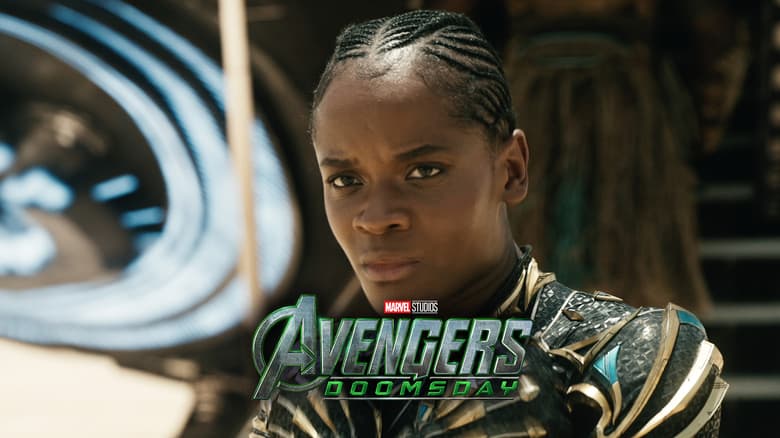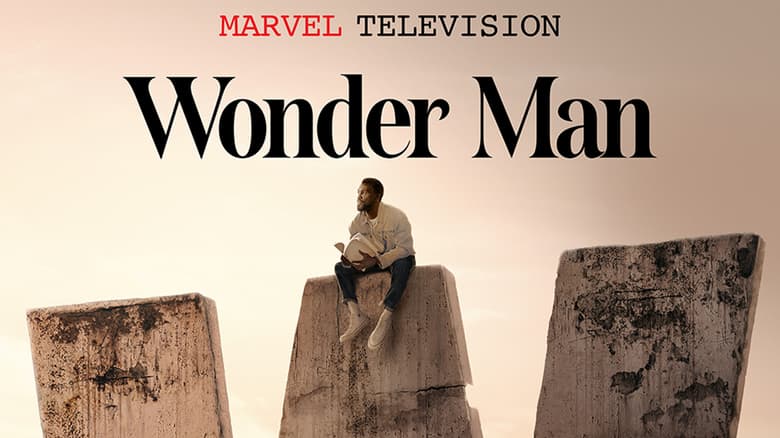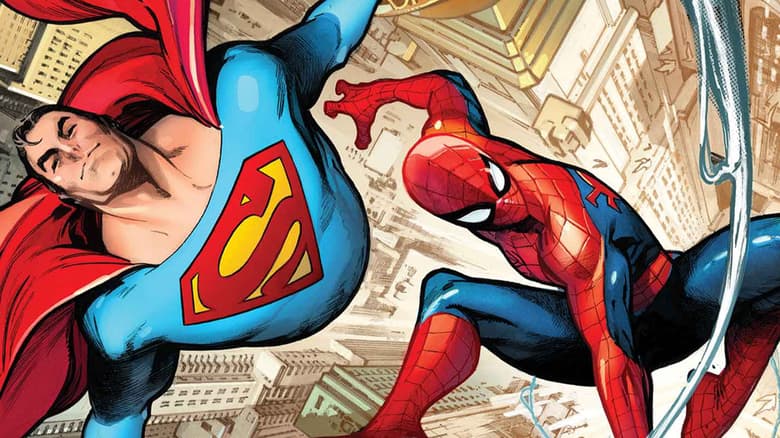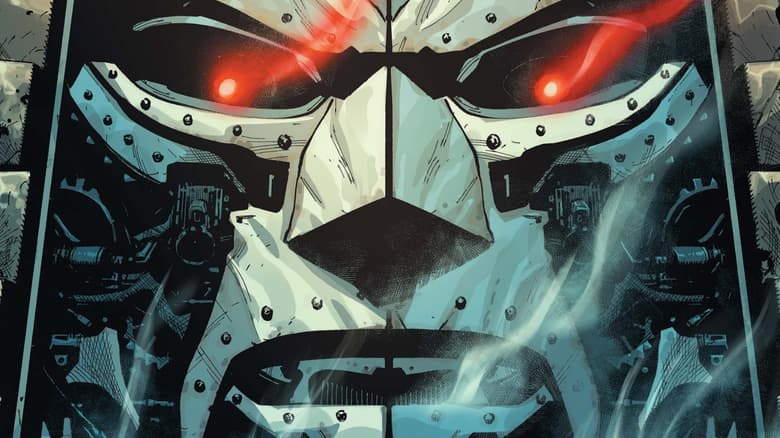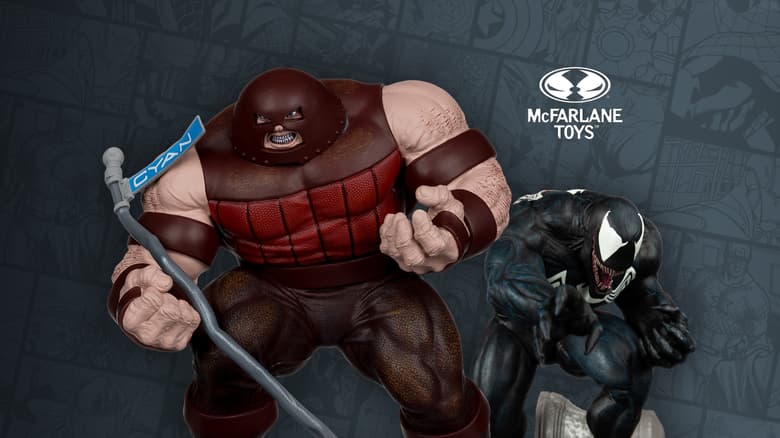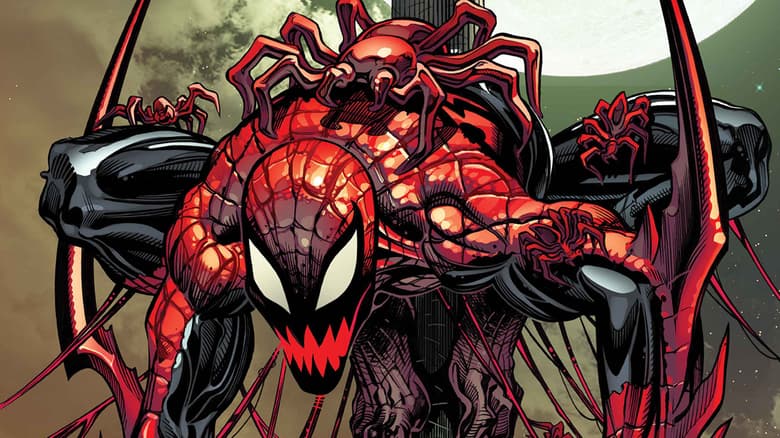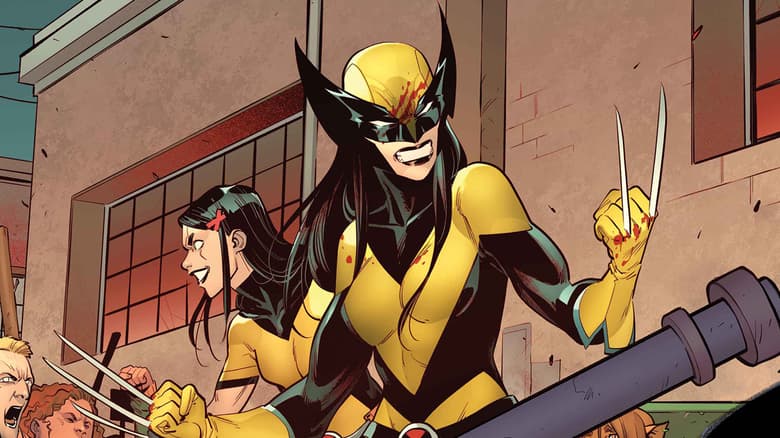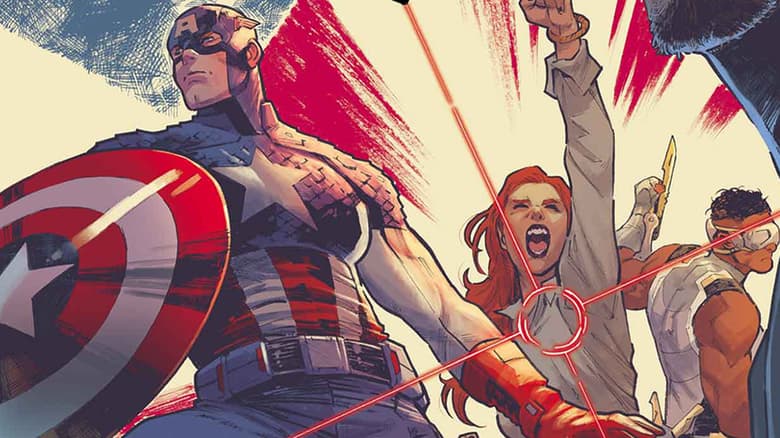The Long Road to ‘Murderworld’
Writers Ray Fawkes and Jim Zub describe the near 20-year journey of their timely tribute to X-Men villain Arcade!
While the MURDERWORLD five-issue tour de force kicked off in November with an Avengers-centric one-shot, its origins stretch back across two decades of friendship between co-writers Ray Fawkes and Jim Zub. We spoke to the duo about the winding path to publication, as well as their affinity for old-school villain Arcade, the broader social message of these comics, their amazing collaborators and much more!
[RELATED: It’s Game Over for Marvel's Heroes in New 'Murderworld' Comic Series]
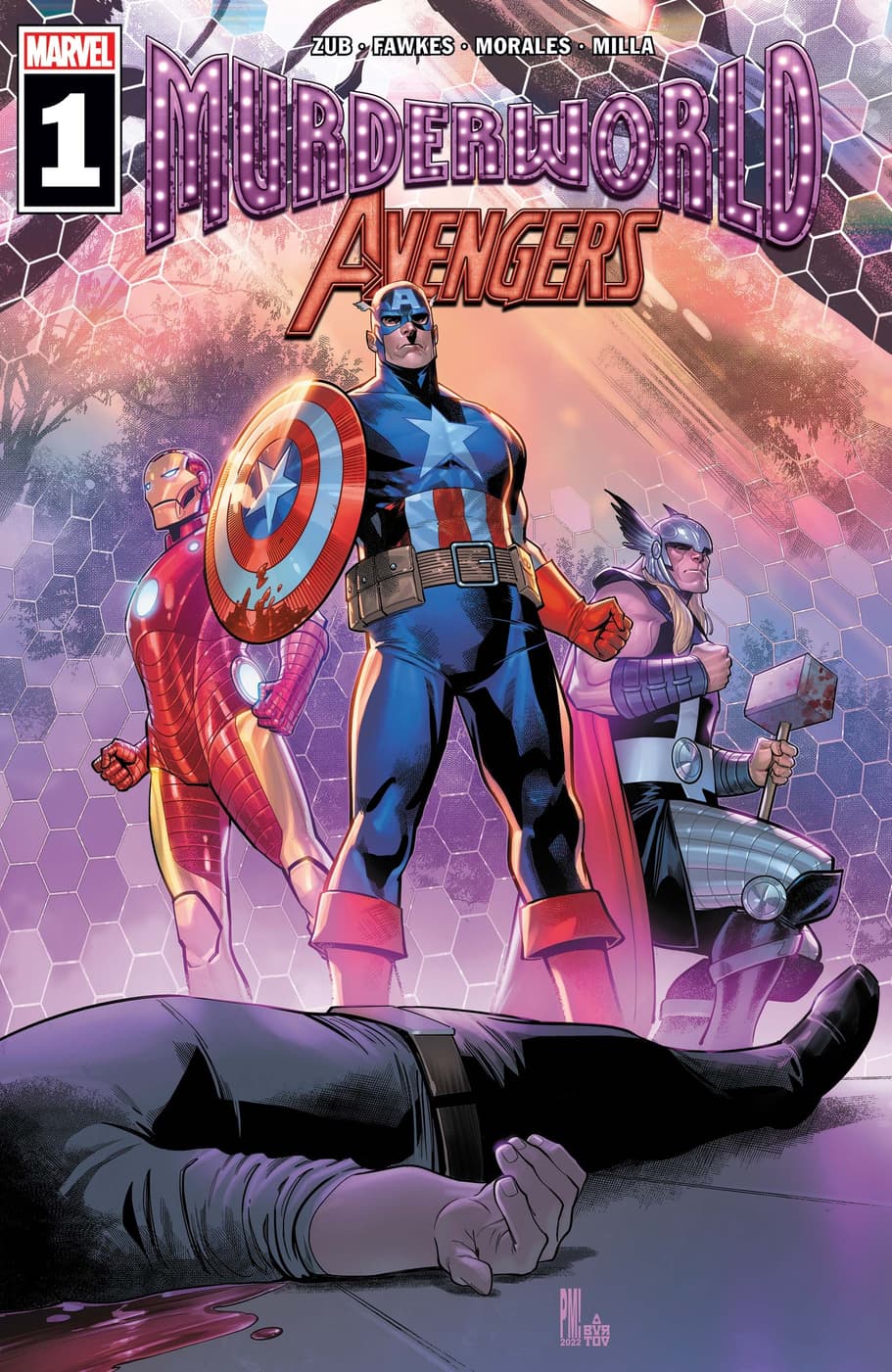
What do readers need to know in order to dive into these MURDERWORLD one-shots?
JIM ZUB: All five of the MURDERWORLD one-shots are essentially forming one larger story. Every time we’ve seen Arcade in the Marvel Universe, he’s been trying to take out Super Heroes, and, for the most part, has been pretty unsuccessful. This is a different game. Arcade is inviting regular people without any super-powers into a much deadlier contest. Ray and I are putting the “Murder” back in “Murderworld.”
In the first chapter, MURDERWORLD: AVENGERS, we followed along with a filmmaker who gets pulled into Murderworld thinking he’s going to make a documentary about Arcade—that goes poorly for him. The contestants are being winnowed down. We start with 200 and cut down almost half of them in that first issue. In issue two, MURDERWORLD: SPIDER-MAN, the contest continues, and as readers of the first installment learned, the Avengers and Spider-Man are not fulfilling their traditional roles as heroes.
Where did you guys come up with the origins for this story in the first place?
RAY FAWKES: Way back in the day, coming up on 18 years ago now…
JIM ZUB: 2004! I met Ray back when I was in college and we were both aspiring creatives. Ray wanted to get into comics right from the get go. I was moving towards animation at that point, but I had some connections in comics and was starting to do some work at UDON Studios. I don’t remember what spurred the conversation, but [Ray] and I were talking about off-the-wall Marvel ideas.
RAY FAWKES: We came up with a list of characters we thought had a lot of potential. At the top of my list was Arcade, which [Jim] thought was pretty hilarious at first.
JIM ZUB: I thought of Arcade very much as he had been shown in the comics to that point; as this cartoonish villain who is never successful. He’s a fun dalliance, but never as lethal as he aspires to be. Ray thought we needed to change that, to make him as deadly as humanly possible.
RAY FAWKES: My sensibilities tend to be pretty dark. For me the idea that was interesting with Arcade was that he always loses. Every time we see him, he loses. What if we did a story where Arcade wins? Jim brought me back down to Earth; Arcade wasn’t going to get to murder Spider-Man. What can we do with him then?
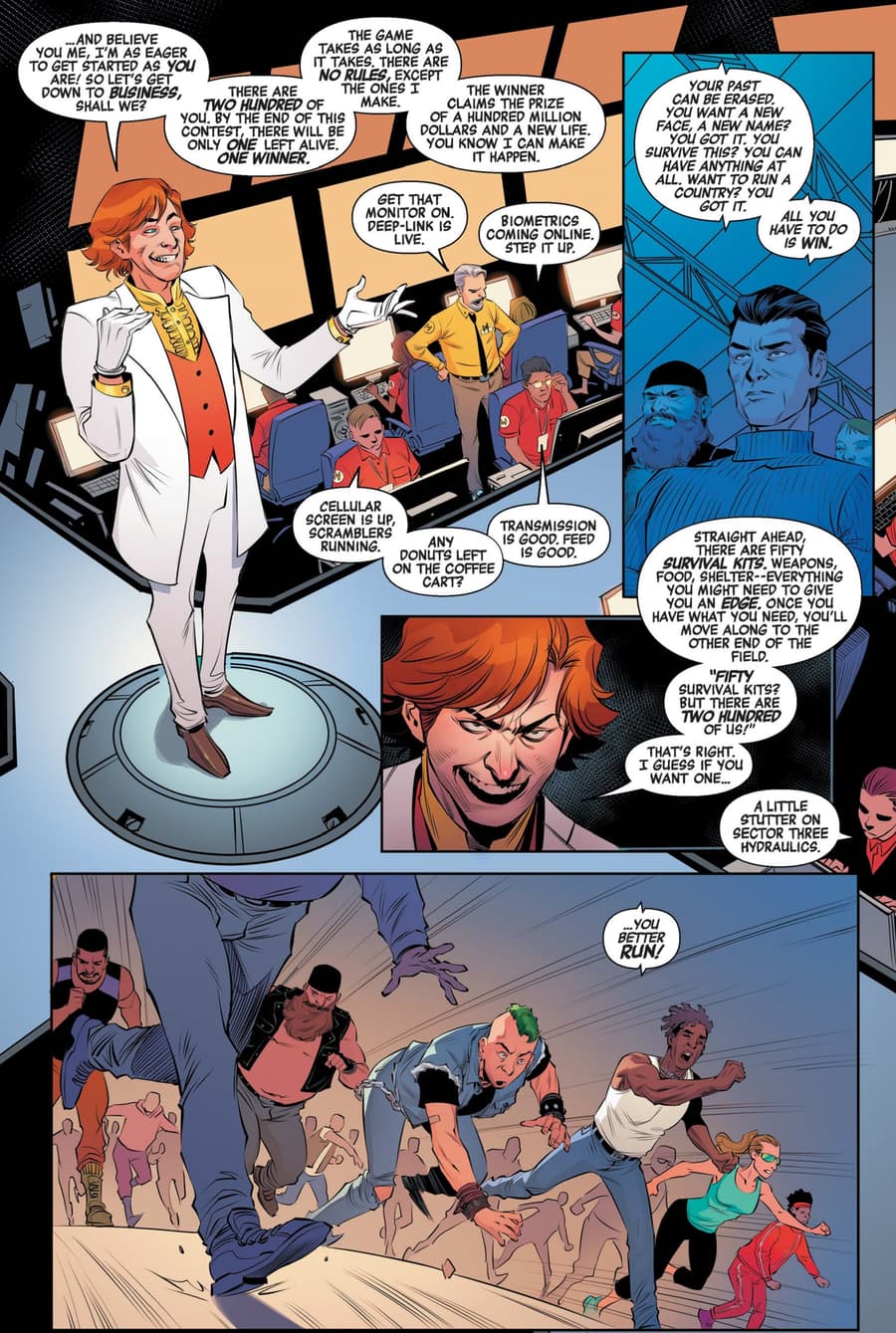
You touched briefly on the “marquee” heroes like the Avengers and Spider-Man, but Black Widow plays an important supporting role too. Why did she fit as a protagonist in this regard?
RAY FAWKES: First of all, we did want to have at least one Super Hero who is actually being a hero. [Both laugh] It’s also important to remind readers that while Arcade operates with relative impunity, he’s not divorced from the rest of the world. There definitely are Super Heroes out there who know about Murderworld and want to do something about it.
JIM ZUB: There are consequences. It also dovetailed with [writer] Kelly [Thompson’s] run on BLACK WIDOW where Arcade played a role in setting up that fake life for her. She ended up getting revenge on the bigger forces, but Arcade enabled it. Whenever Arcade is in a story, I perk up a little bit, so I read that and thought it was really neat. [Editor] Sarah Brunstad edited that book as well, so I asked if Kelly had plans to follow up on it, and she did, but not on the Arcade piece. I’m a continuity nerd. I love that the Marvel Universe is ever growing and ever moving forward, acknowledging things in a way that makes sense.
Black Widow felt like the perfect kind of hero to have brewing in the background. She’s not Thor; she can’t just zoom in with cosmic-level powers and fix the problem. She’s got to be a spy, to gather the data and find him. She’s off the grid. She wants revenge. She’s not out to arrest Arcade, she wants this to stop. It feels appropriate for the character and allows us to have another through line that connects the individual chapters and adds to the big finish.
What are some of your favorite past stories involving Arcade and Murderworld?
RAY FAWKES: When I was a teenager, one of the books I collected was UNCANNY X-MEN (1963). Arcade made a few appearances there, and Murderworld as this amusement park of death always seemed so rich with promise. I remember the stories always ending faster than I hoped for. The X-Men handled him pretty quickly. Even as a teenager I remember wanting to know more about this guy and the crazy traps he built.
JIM ZUB: I was plugged into the Marvel Universe as a kid, and often couldn’t afford back issues, so I would get The Official Handbook [of the Marvel Universe]. That was how I understood the Marvel Universe, by reading those profiles. My brother was collecting UNCANNY X-MEN so I did get those Arcade issues and they were really fun. There was also an early EXCALIBUR (1988) issue where Arcade showed up and it was a wild time. Alan Davis drew the hell out of that.
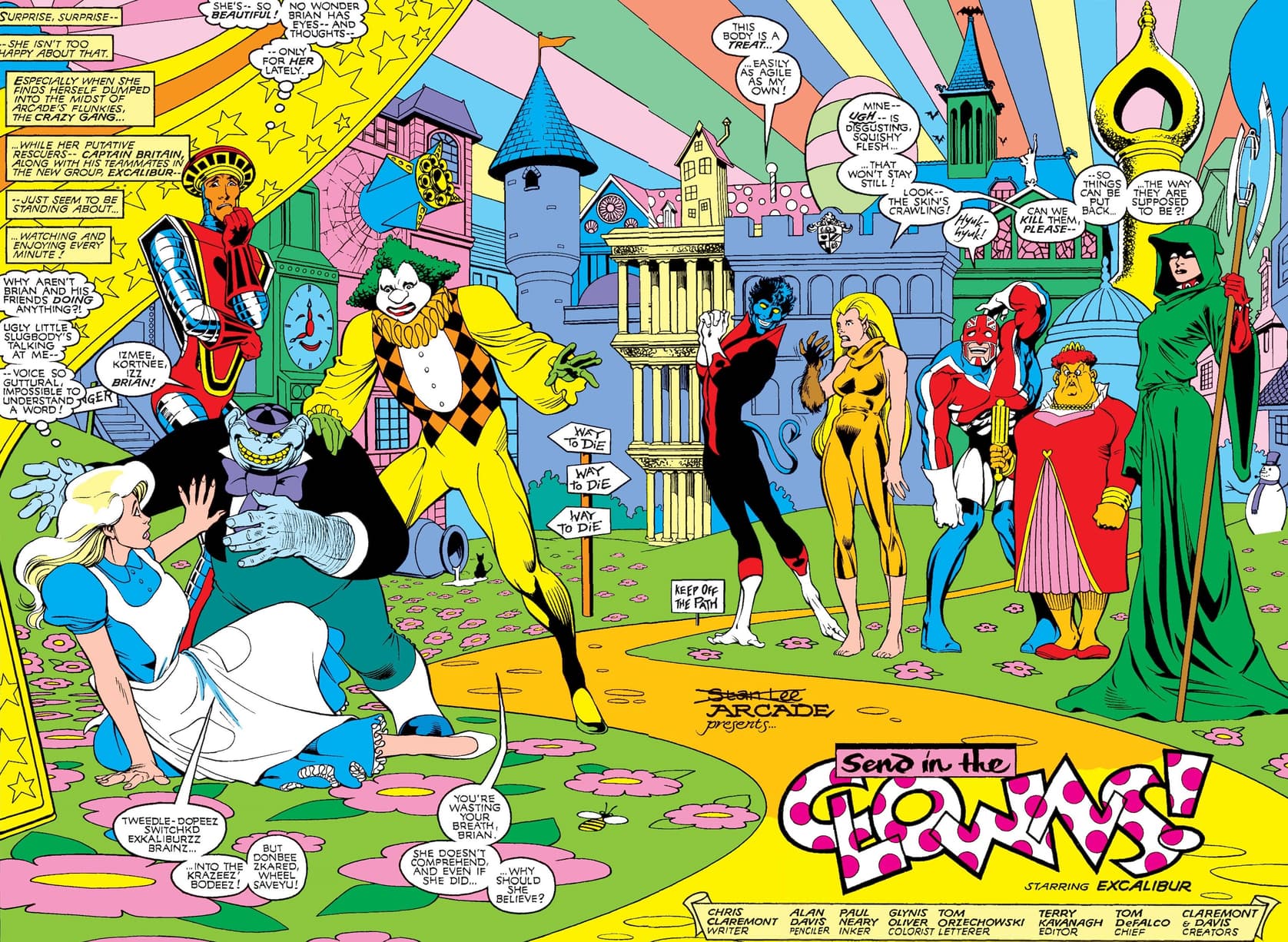
What are you guys trying to say, maybe, societally with this story?
RAY FAWKES: For me, one disconcerting thing is how easy it is for everybody to be able to disconnect; we’re so bombarded with media and news that it’s easy to see it all as entertainment. But really what you’re seeing in some cases is actual hardship and suffering. To me, Arcade is somebody capitalizing on that feeling and the idea that if you don’t know somebody, you don’t care, and it might be fun to see them blow up like in a movie.
JIM ZUB: It’s gladiatorial combat writ large in the modern age. It’s the concept that whatever has your attention is good, as long as you’re engaged. We see that with news and social media; it’s not about good or bad, it’s about getting attention. That’s all that matters. Arcade knows he can hold onto you because of your fear, your greed, and your engagement.
RAY FAWKES: Arcade is a clickbait master; “You’ll never believe what Spider-Man is going to do next!” [Jim laughs]
You said you’ve been friends for a long time, but this is your first time writing together. What is your process like?
RAY FAWKES: Surprisingly smooth.
JIM ZUB: Yeah, it’s been good. I don’t know if part of it is the shock that we’re actually getting to do this. We created the outline together and then broke it down into the five chapters and assigned each issue. Ray scripted MURDERWORLD: AVENGERS and I scripted MURDERWORLD: SPIDER-MAN, Ray scripted WOLVERINE and I scripted MOON KNIGHT, then we jammed on MURDERWORLD: GAME OVER #1, the finale. In that last issue, Ray took a first pass but then left in whole sequences for me to do. It has been truly collaborative.
RAY FAWKES: We bat a lot of stuff back and forth. Jim has a talent for the lighter stuff.
JIM ZUB: It becomes less light when you put it in the context of killing people. [Both laugh]
It’s been a ton of fun. Early on I was self-editing a lot of the more vicious stuff I didn’t think we could get away with, but [our editor Sarah Brunstad] said to write the book we wanted to write and then they would find the line; it was her job as the editor to hold us back. We’ve found ways to put ludicrous things in every issue. A lot of stuff is also off panel so you can infer.
What else did you want to mention before we wrap up?
JIM ZUB: Let’s brag about our collaborators, because they really make the whole thing run! Each issue is being drawn by a different artist and they’re all crushing it. AVENGERS was Jethro Morales, who set it up beautifully. We changed things up so often in SPIDER-MAN, and Farid Karami effortlessly switched it up from jungles to the mountains to vast underground tunnels. Carlos Nieto has done a phenomenal job on WOLVERINE. It’s so ludicrously violent I don’t know how we’re getting away with it. There’s a lot in that issue that needed to be covered up with shadow to keep our rating. Luca Pizzari is doing MOON KNIGHT, and that has some of the darkest jokes I have ever put into a comic.
RAY FAWKES: It’s bonkers.
JIM ZUB: It’s so awesome. I love that one to bits—way more than I thought I was going to, actually. And then Lorenzo Tammetta brings it all home in a huge, fantastic way with “Game Over.” They’re all great!
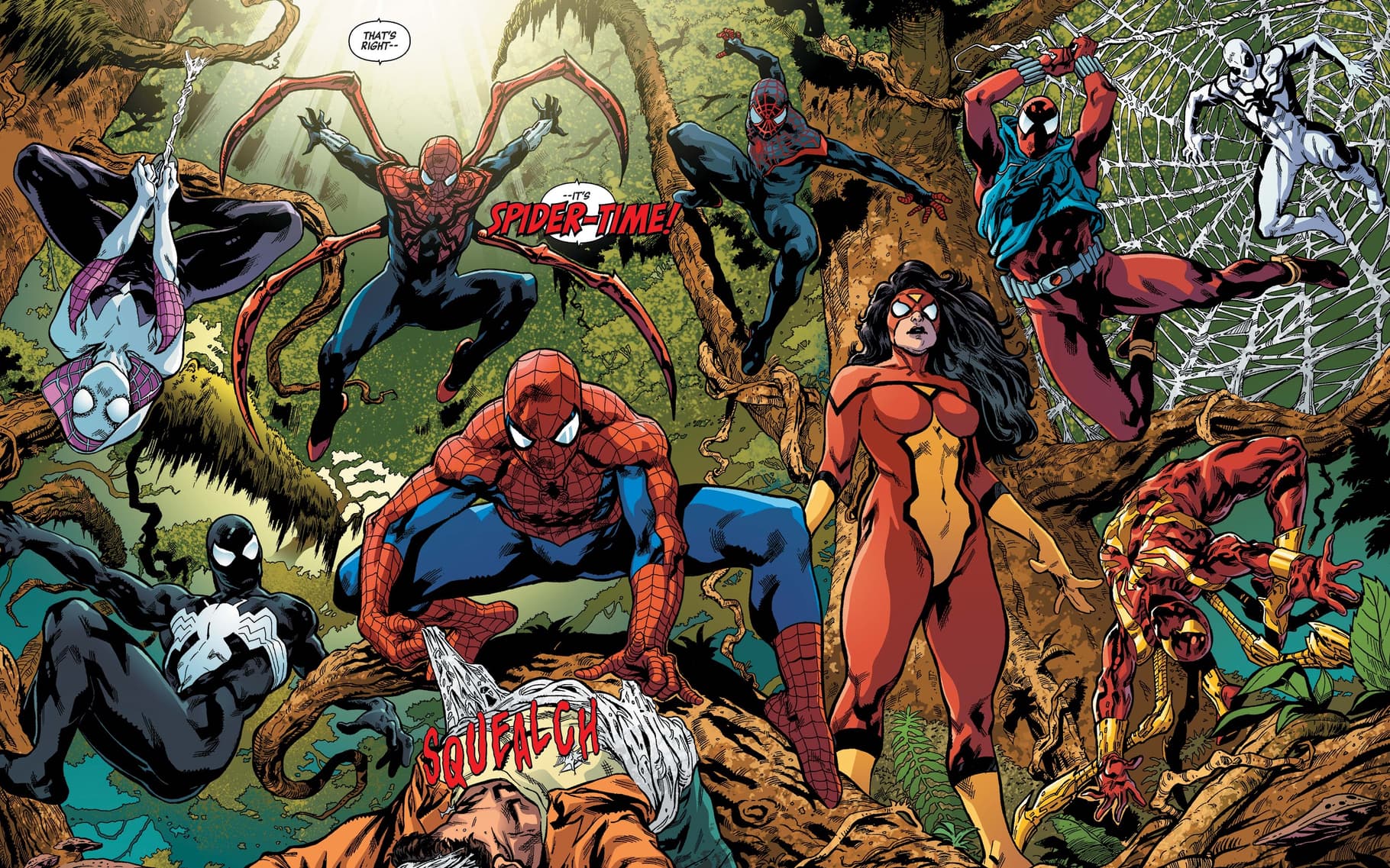
Follow the entire “Murderworld Saga” by picking up MURDERWORLD: AVENGERS and MURDERWORLD: SPIDER-MAN, available in print and digital comic shops now!
And, be on the lookout for MURDERWORLD: WOLVERINE on January 25 followed by MURDERWORLD: MOON KNIGHT on February 15!
The Daily Bugle
Can’t-miss news and updates from across the Marvel Universe!
